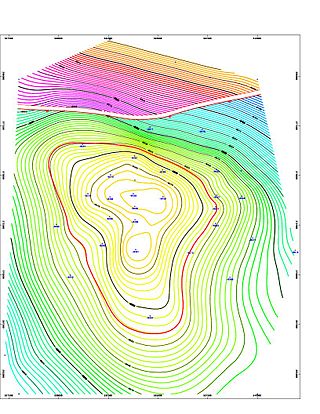
Petroleum engineering is a field of engineering concerned with the activities related to the production of Hydrocarbons, which can be either crude oil or natural gas. Exploration and production are deemed to fall within the upstream sector of the oil and gas industry. Exploration, by earth scientists, and petroleum engineering are the oil and gas industry's two main subsurface disciplines, which focus on maximizing economic recovery of hydrocarbons from subsurface reservoirs. Petroleum geology and geophysics focus on provision of a static description of the hydrocarbon reservoir rock, while petroleum engineering focuses on estimation of the recoverable volume of this resource using a detailed understanding of the physical behavior of oil, water and gas within porous rock at very high pressure.
The American Association of Petroleum Geologists (AAPG) is one of the world's largest professional geological societies with more than 40,000 members across 129 countries as of 2021. The AAPG works to "advance the science of geology, especially as it relates to petroleum, natural gas, other subsurface fluids, and mineral resources; to promote the technology of exploring for, finding, and producing these materials in an economically and environmentally sound manner; and to advance the professional well-being of its members." The AAPG was founded in 1917 and is headquartered in Tulsa, Oklahoma; currently almost one-third of its members live outside the United States.

The Society of Exploration Geophysicists (SEG) is a learned society dedicated to promoting the science and education of exploration geophysics in particular and geophysics in general. The Society fosters the expert and ethical practice of geophysics in the exploration and development of natural resources, in characterizing the near-surface, and in mitigating earth hazards. As of November 2019, SEG has more than 14,000 members working in more than 114 countries. SEG was founded in 1930 in Houston, Texas but its business office has been headquartered in Tulsa, Oklahoma since the mid-1940s. While most SEG members are involved in exploration for petroleum, SEG members also are involved in application of geophysics methods to mineral exploration as well as environmental and engineering problems, archaeology, and other scientific endeavors. SEG publishes The Leading Edge (TLE), a monthly professional magazine, Geophysics, a peer-reviewed archival publication, and Interpretation, a peer-reviewed journal co-published by SEG and the American Association of Petroleum Geologists.

The Society of Petroleum Engineers (SPE) is a 501(c)(3) not-for-profit professional organization whose stated mission is "To connect a global community of engineers, scientists, and related energy professionals to exchange knowledge, innovate, and advance their technical and professional competence regarding the exploration, development, and production of oil and gas and related energy resources to achieve a safe, secure, and sustainable energy future."
The Rocky Mountain Association of Geologists (RMAG), based in Denver, Colorado, is one of the oldest and largest regional geological societies in the United States. The society is a nonprofit organization founded in 1922. It is a regional affiliate of the American Association of Petroleum Geologists (AAPG).
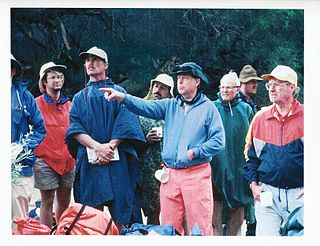
Fred F. Meissner was an American geologist and engineer who contributed to the fields of geology, geophysics, engineering, petroleum engineering, geochemistry, mineralogy, physics, mining, economic geology, and fishing.
The Pittsburgh Geological Society, more familiarly known as the PGS, was founded in 1945. Its purpose is to serve the professional interest of the society's membership.

William Embry Wrather was an American geologist.

The Canadian Society of Petroleum Geologists (CSPG) is a professional geological society in Canada. The CSPG works to advance the science of geology, foster professional development of members and promote community awareness of the profession. The organization was founded on December 17, 1927 as the Alberta Society of Petroleum Geologists in Calgary and was modelled after the American Association of Petroleum Geologists. It is based in Calgary, Alberta.
The Association of Environmental & Engineering Geologists (AEG), is the principal American association of professionals in the fields of geotechnical engineering, engineering geology, soils engineering, hydrological engineering, and environmental geology. The association also includes geologists, civil engineers, structural engineers, ecologists, petroleum engineers and others in fields relating to engineering geology and its effects on the environment.

Sergo OrdzhonikidzeRussian State University for Geological Prospecting, or the Russian State University for Geological Prospecting is named after Sergo Ordzhonikidze and previously known as the Moscow Geological Prospecting Institute, is a public university based in Moscow, Russia, specialising in geology, geophysics, gemmology, ecology and other earth-science disciplines.

Theron Rhodes Wasson (1887-1970) was a leading American petroleum geologist and engineer, who pioneered the use of geophysical surveys to find oil and gas.
Doctor Scott W. Tinker is an American geologist, educator, energy expert, and documentary film maker.
Doris Malkin Curtis was an American paleontologist, stratigrapher, and geologist. She became the first woman president of the Geological Society of America (1991) and made meaningful contributions towards Scripps Institution of Oceanography.
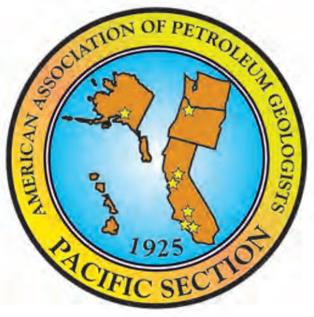
The Pacific Section of the American Association of Petroleum Geologists, or PSAAPG, is a non-profit geological society whose members are interested in the geology of the West Coast of the United States. Originally founded in 1924 as the Pacific Society of Petroleum Geologists, this organization today is one of the regional divisions of the American Association of Petroleum Geologists (AAPG). Although mainly geologists associated with the petroleum industry join the society, its membership also includes environmental geologists, educators, geophysicists and engineers who find membership in the organization benefits their personal interests and/or careers.
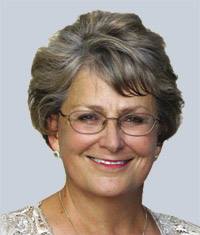
Robbie Rice Gries is an American petroleum geologist who was the first female president (2001–02) of the American Association of Petroleum Geologists (AAPG), president of the Geological Society of America (2018–19), and founder of Priority Oil & Gas LLC. Gries is noted to have made some influential progress for women in this field. In 2017, Gries published the book titled Anomalies—Pioneering Women in Petroleum Geology: 1917-2017. Gries is recognized as an unconventional thinker when approaching geological concepts and applications.
Elizabeth Ann Elliott pioneered the expansion of the role of women in petroleum geology. She was an active member of the American Association of Petroleum Geologists (AAPG) for 56 years.
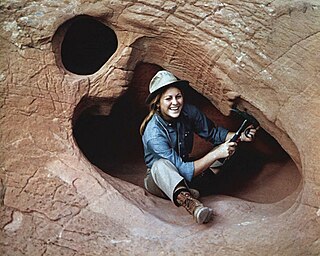
Randi Martinsen is an American geologist and senior lecturer in the Department of Geology and Geophysics at the University of Wyoming. She has extensively worked on the Western Interior Cretaceous basin with a particular interest in stratigraphic trap exploration, paleotectonic influences on depositional systems, and clastic reservoir characterization. Martinsen is a former president (2014–2015) and the second woman ever elected to head the American Association of Petroleum Geologists Foundation (AAPG), an organization that provides educational programs, scientific research, and engineering services in communities around the world.
John Robert Suman was a geologist, petroleum engineer, and business executive.












